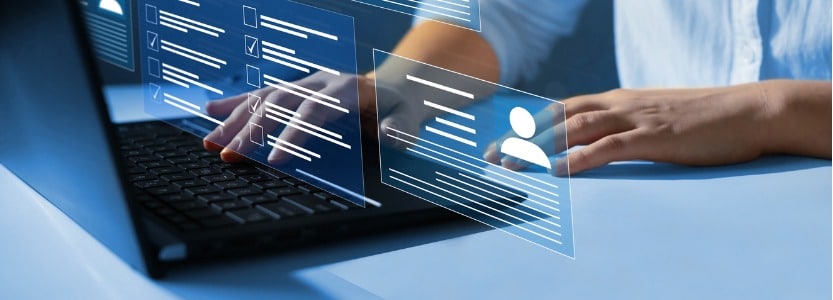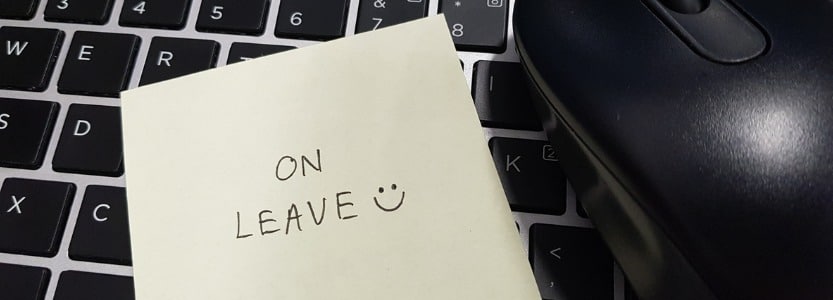Understanding and preventing presenteeism in your workplace
Updated 5th August 2024 | 8 min read Published 5th August 2024

There’s a chance the following scenario will feel familiar — it’s an everyday example of presenteeism.
The clock ticks to 5.30pm. You’re tired, shattered, actually. Your shoulders ache, and your brain feels as if it’s full of glue. That cold you’ve pushed down with paracetamol threatens to rear its head.
In fact, you’re not sure it’s just a cold.
Anyway, you look at your watch: it’s 5.30pm. But the boss and your more experienced co-worker are still here.
Maybe, then, it’s worth working a bit longer. It’s a chance to iron over the mistakes and delays from your brain fog and show you’re a team player. You can battle on with the help of some coffee and maybe chip away at the department’s sky-high target.
The hidden face of presenteeism
Long hours pass. What pulls you away from your desk is a call from a loved one.
In the past, it might be something like, “When are you coming home?” But today, it’s just as likely to be, “When are you coming downstairs?”
That’s because presenteeism is alive and well in a world where many work from home. Some might say it’s thriving because of remote work practices. That boss and coworker you saw sat across from you just a few years ago are now as likely to be a green “present” dot on a team communications app.
What is presenteeism?
Chances are you’ve been guilty of presenteeism at some point in your career, or you have had to use all your willpower not to be a part of it.
In essence, presenteeism is a performance. One that’s bad for your health, bad for work-life balance, and bad for the business.
This is what happens: to fit in at work, staff get an overwhelming feeling they have to be present. They are ‘always on’ – they feel the need to be constantly available and responsive, even during their time off. They could be working whilst sick, working late or working while on holiday. Perhaps it’s a combination. Regardless, they shouldn’t be there.
And, to clarify, presenteeism is not about burning midnight oil on a one-off project. It’s a long-term thing. It’s a monkey on your back powered to some extent or another by fear.
Digital presenteeism and mobile presenteeism
Presenteeism can bleed into our virtual world – unsurprisingly, this is called digital presenteeism.
That’s not confined to someone sitting at home and nudging a mouse around while they feel progressively worse.
Digital presenteeism started before COVID-19 created momentum behind home working. Mobile phones with web access meant people could reply to emails long after the office had shut. They could text people and forward urgent-sounding emails when we would usually be ‘switched off’. Working life no longer had the boundaries it once had.
This latter, mobile digital presenteeism can just as easily rob a person of a decent morning’s start – or pull them into a work drama before they’ve even considered calling in sick if they’re unwell.
What’s the effect of presenteeism?
If you want to know the effects of presenteeism, we can start at the bottom line and potential productivity losses.
Bupa believes presenteeism can cost your business more than absenteeism. It’s been found presenteeism costs employers somewhere between two and three times more than they might otherwise spend looking after staff via insurance premiums or employee claims.
Why? Because if you continue to work while in pain – or continue to work while you’re depressed – then that’s a lot of lost productivity.
If you’re ill, you make mistakes, and you burn up energy you can’t get back the next day.
Inevitably, you also make other people sick if you’re ill – as COVID-19 proved time and again with dangerous efficiency.
And then there’s the toll on physical and mental health. If you weren’t ill before, chances are you will develop health problems because of unreasonable working hours and the inability to switch off.
What causes presenteeism?
Many things can cause presenteeism, but at the root is a need to conform out of fear.
The working environment
First is the workplace culture, which is shaped from the top down. If a leader or company veteran is seen to be sticking around late, constantly turning up at the crack of dawn and fighting illness at their desk, those not sure how to fit in will follow suit.
This can be exacerbated if, for some reason, people are worried about losing their jobs. This may be because you work in a high-pressure environment or something has happened in an otherwise less turbulent setting (such as redundancies) that created extra instability.
Financial insecurity is another major issue. If your paid sick leave is below par, people will drag themselves into work to pay the bills.
Other changes in the workplace can cause issues. For instance, if you now work from home and are ill, you might wrongly assume you’re able to carry out your day job because you don’t have to commute. But sickness is sickness, even if you can’t pass it to coworkers or have a fraction of extra energy because you didn’t have to jump onto the tube this morning.
Personal issues that cause presenteeism
However, the CIPD also says issues personal to an individual can cause presenteeism. For instance, if someone is stressed, they might work longer hours. As their stress snowballs, they might stick around for longer hours to fix oversights caused by their presenteeism.
This is one example of poor mental health causing presenteeism, but there are others. Depression can slow you down, as can underlying anxiety that’s not related to the job.
Health conditions can also mean people are sticking around late and when sick to compensate for any struggles they are having.
Meanwhile, disorders like ADHD can cost businesses money when left unaddressed or misunderstood.
The CIPD also draws attention to sleep deprivation. Everything we’ve mentioned above can detract from decent sleep, and a lack of sleep can mean less focus the next day. You can see how this would create a cycle of presenteeism.
How can you reduce presenteeism?
The first thing is to lead from the top. Do your managers finish at close of play, or are they visibly working late? Is that what’s causing employees to stay behind? And what about the systems you have in place in your teams to let people be ill, recover and come back feeling productive?
Fixing culture and processes
If you’re a business owner or have a stake in the company, your motivation to stick around is entirely different from that of junior staff. You might have been out all day finding new business, for example, and are just catching up on emails. Junior staff, on the other hand, might misunderstand this and continue to toil away at tasks they’re already on top of.
So, how do you make such a distinction clear? One approach might be to ask junior staff if they are okay if you spot them working while ill or after hours. Perhaps it is because there is a staffing or process issue. Another approach, if you’re a business leader, might be openly discussing what you’re up to if it’s appropriate, so junior staff understand their circumstances are different.
Creating a system of well-being
Because presenteeism costs you, then that projected loss means you effectively have a budget for spending that money on good healthcare for your staff. You can run the maths on this, as some businesses have, to find ways to protect employee health.
Can you just allow presenteeism?
Controversially, there’s a school of thought that not all presenteeism is bad.
There’s research that suggests – for some people – it can be a route to recovery. It can be therapeutic and functional, but a positive working environment must underpin this. That is if you agree with the notion that some presenteeism can be okay in the first place.
If you allow someone to work when they’re not well, be aware of any repercussions for their recovery and well-being. Check they are okay and want to do this (as opposed to feeling obliged to do so).
If it sounds like a gamble, however, that’s perhaps because it is.
Great ways to look after your staff
Find out more about our HR solutions here.
Or alternatively, if you’d like to hear what our experts think on all the latest human resources issues, head here to listen to our people-centred podcasts.




